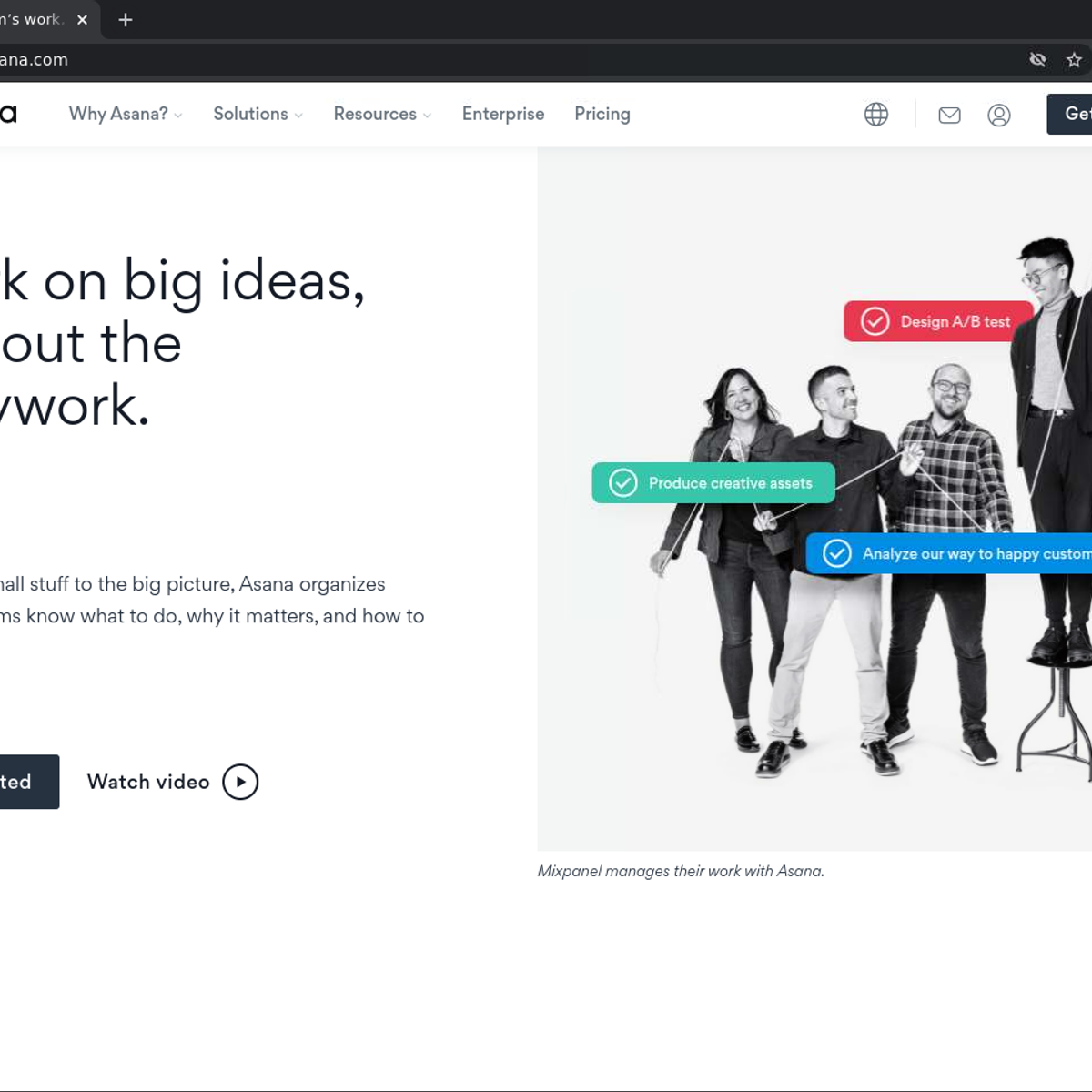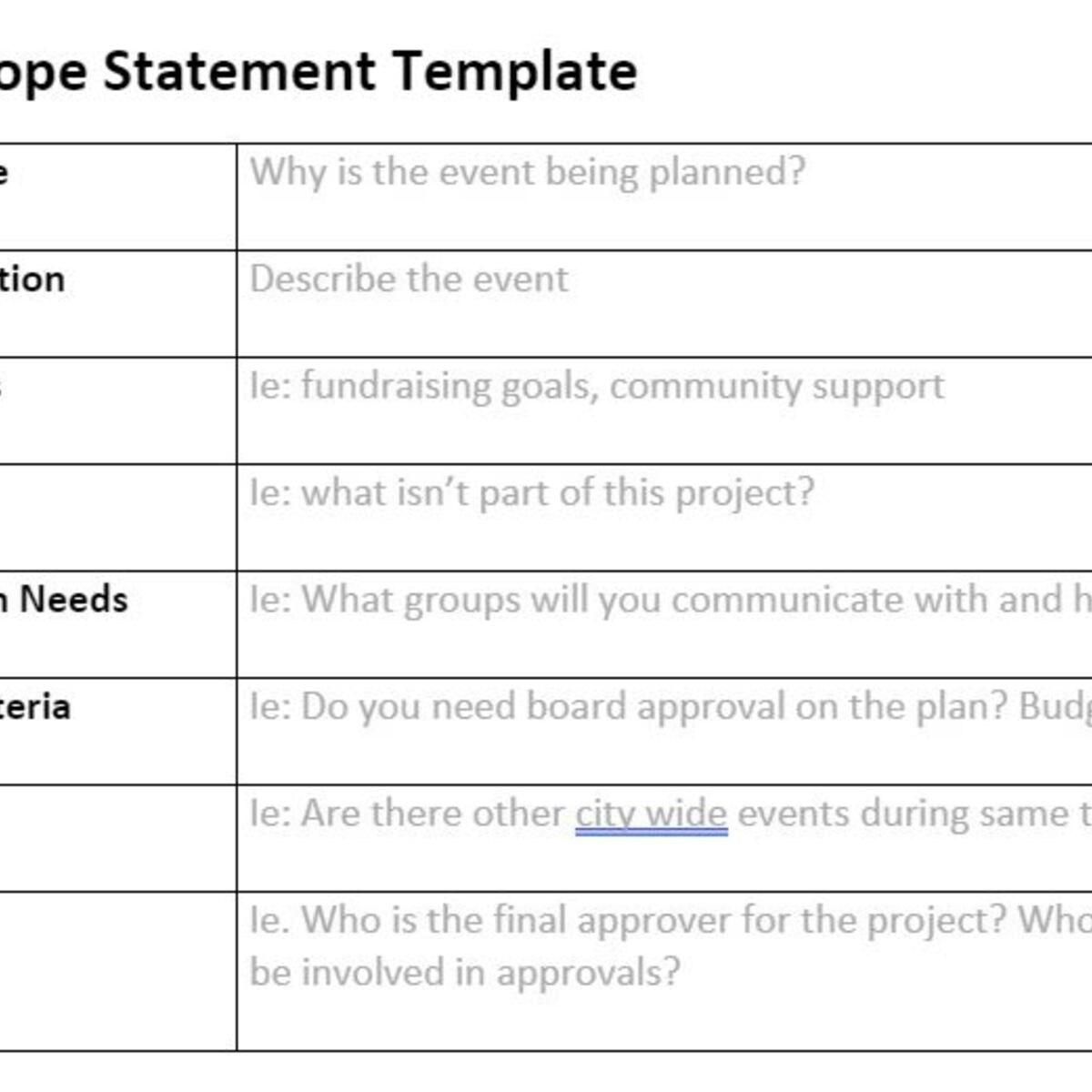Administrative Assistant
The Essential Guide to a Career as an Administrative Assistant
An Administrative Assistant is a professional who provides crucial support to ensure the efficient operation of an office or organization. These individuals are often the backbone of a company, handling a wide array of tasks that keep daily operations running smoothly. From managing schedules and communications to maintaining records and preparing reports, their contributions are vital across numerous industries. The role demands a blend of organizational prowess, technical skills, and interpersonal abilities to effectively support teams and executives.
Working as an Administrative Assistant can be an engaging and dynamic career. One of the exciting aspects is the sheer variety of tasks and responsibilities, meaning no two days are exactly alike. You might find yourself at the center of office communications, coordinating projects, or even playing a key role in event planning. Furthermore, this role often provides a unique vantage point to learn the inner workings of a business, offering opportunities to interact with various departments and levels of management, which can be incredibly insightful and pave the way for future career growth.
What is an Administrative Assistant?
This section will delve into the specifics of what it means to be an Administrative Assistant, exploring the core functions, the environments they work in, and how this role differs from similar positions. Understanding these facets is key to appreciating the breadth and importance of this career.
Definition and Core Responsibilities
An Administrative Assistant, sometimes referred to as an administrative professional, office clerk, or personal assistant, is responsible for a diverse range of tasks that support the smooth functioning of an office or organization. Their core responsibilities often include managing and distributing information within an office, which can involve answering phones, taking memos, and maintaining files. They are frequently tasked with scheduling appointments and meetings, making travel arrangements for executives, and preparing reports and correspondence.
Beyond these traditional duties, many administrative assistants also handle office supplies, coordinate office events, and may even assist with basic bookkeeping or inducting new staff members. The ability to multitask, prioritize effectively, and maintain a high level of organization is fundamental to success in this role. These professionals are often the first point of contact for clients or visitors, making strong communication and interpersonal skills essential.
Administrative assistants are the organizational linchpins in many businesses, ensuring that daily operations are seamless and efficient. They are often privy to unique insights about company culture and performance due to their central role.
Key Industries and Sectors Employing Administrative Assistants
Administrative Assistants are indispensable across a vast spectrum of industries and sectors. You'll find them in corporate environments, supporting executives and entire departments in fields like finance, technology, and marketing. The healthcare sector heavily relies on medical administrative assistants to manage patient records, schedule appointments, and handle billing and insurance processing.
Educational institutions, from K-12 schools to universities, employ administrative staff to support academic departments, manage student records, and coordinate administrative functions. Government agencies at local, state, and federal levels also require administrative professionals for a wide array of support tasks. Furthermore, non-profit organizations, legal firms, real estate companies, and manufacturing businesses all depend on the skills of administrative assistants to maintain operational efficiency. The versatility of the role means that opportunities exist in nearly every sector of the economy.
The demand for skilled administrative professionals is widespread, highlighting the universal need for organizational and support functions within businesses and organizations of all types. Their ability to adapt to different work environments and industry-specific needs makes them a valuable asset across the board.
Distinction Between Administrative Assistants and Similar Roles
While the term "Administrative Assistant" is often used broadly, there are distinctions between this role and similar positions like Executive Assistant and Office Manager. An Administrative Assistant typically provides support to a team, department, or a group of managers, handling a wide variety of daily operational tasks. Their focus is often on ensuring the smooth running of general office procedures and supporting multiple individuals' needs.
An Executive Assistant, on the other hand, generally provides dedicated support to one or more high-level executives, such as a CEO or Vice President. Their responsibilities are often more complex and strategic, involving managing executive calendars, coordinating travel and conferences, handling confidential information, and acting as a gatekeeper for the executive. While administrative assistants may advance to become executive assistants, the latter role typically involves a greater degree of responsibility and autonomy.
An Office Manager has a broader scope of responsibility, often overseeing the entire office's operations and administrative staff. They might manage budgets, supervise other administrative personnel, implement office policies, and ensure the overall efficiency of the workplace. While an administrative assistant focuses on specific tasks and support, an office manager is more concerned with the holistic management of the office environment. However, it's worth noting that employers sometimes use these titles interchangeably, so it's always important to review the specific job description.
Roles and Responsibilities
The daily life of an Administrative Assistant is often multifaceted, involving a blend of routine tasks and specialized duties that can vary significantly depending on the industry and the specific needs of the organization. Understanding these diverse responsibilities provides a clearer picture of what this dynamic career entails.
Daily Tasks: Scheduling, Correspondence, and Record-Keeping
A significant portion of an Administrative Assistant's day is often dedicated to managing schedules. This includes coordinating appointments, booking meetings, and maintaining calendars for individuals or teams. Effective scheduling requires meticulous attention to detail, proactive communication, and the ability to juggle competing priorities to ensure that time is managed efficiently.
Correspondence is another key daily task. Administrative Assistants are frequently responsible for drafting, editing, and distributing various forms of communication, including emails, letters, memos, and reports. This can range from routine internal announcements to formal external correspondence with clients or stakeholders. Maintaining professionalism and clarity in all written and verbal communication is paramount. Proficiency in email etiquette is particularly important in today's digital world.
Record-keeping and information management are also central to the role. This involves organizing and maintaining physical and digital files, ensuring that documents are easily accessible and securely stored. Tasks can include data entry, updating databases, and preparing documents for meetings or presentations. Accuracy and a systematic approach to organization are crucial for effective record-keeping.
To gain proficiency in managing these daily tasks, particularly email communication, specific training can be very beneficial. Online courses often provide focused instruction on crafting professional and effective emails.
For those looking to enhance their overall professional communication abilities, broader courses are also available. These can help in developing skills for various business communication scenarios, including creating impactful presentations.
Books can also offer valuable insights into effective communication strategies in the workplace.
Specialized Responsibilities in Different Industries
The responsibilities of an Administrative Assistant can take on specialized dimensions depending on the industry. For instance, in the healthcare sector, a Medical Administrative Assistant will handle tasks specific to that environment, such as managing patient records, scheduling patient appointments, and dealing with medical billing and insurance processing. They must be familiar with medical terminology and maintain strict confidentiality due to the sensitive nature of patient information.
In a legal setting, a Legal Administrative Assistant or Legal Secretary will prepare legal documents like summonses, subpoenas, complaints, and motions. They will also assist with legal research, maintain case files, and manage attorney schedules. A strong understanding of legal procedures and terminology is crucial. You can explore more about legal careers and skills through Legal Studies courses on OpenCourser.
Administrative Assistants in corporate finance might assist with preparing financial reports, tracking expenses, and managing investor relations communications. Those in technology companies might support engineering teams with project documentation or manage software licensing. In education, responsibilities could include student admissions support, faculty assistance, or event coordination. This industry-specific tailoring of duties makes the role adaptable and offers diverse experiences.
These examples highlight how core administrative skills are applied differently across various fields, often requiring additional, specialized knowledge. For those in healthcare settings, understanding the intricacies of medical billing and coding is particularly important.
Interaction with Technology and Software Tools
Modern Administrative Assistants heavily rely on technology and a variety of software tools to perform their duties efficiently. Proficiency in office productivity suites is fundamental. This typically includes word processing software like Microsoft Word for creating documents, spreadsheet programs such as Microsoft Excel for managing data and creating reports, and presentation software like Microsoft PowerPoint for developing visual aids.
Email and calendar management applications, such as Microsoft Outlook or Google Workspace (formerly G Suite) tools like Gmail and Google Calendar, are used daily for communication and scheduling. Many administrative roles also require familiarity with database software for record management and potentially customer relationship management (CRM) systems for tracking client interactions. Cloud computing and remote work tools have also become increasingly important, enabling collaboration and task management from various locations.
Beyond these core tools, some administrative professionals may need to learn industry-specific software, such as project management platforms (e.g., Asana, Trello, Notion), accounting software, or specialized databases. The ability to quickly learn and adapt to new technologies is a valuable asset in this evolving role. Software Tools on OpenCourser offers a wide range of learning opportunities for these applications.
Developing strong skills in these essential software packages is crucial for any aspiring or current Administrative Assistant. Online courses provide excellent opportunities to master these tools, from basic functionalities to advanced techniques.
For those looking to deepen their knowledge, comprehensive books on office software can also be very helpful guides.
Familiarity with specific tools like Microsoft Outlook is also highly beneficial.
Formal Education Pathways
While practical experience and on-the-job training are valuable, formal education can provide a strong foundation and recognized credentials for aspiring Administrative Assistants. Various educational pathways can equip individuals with the necessary knowledge and skills for this career.
High School Preparation: Relevant Courses and Skills
Preparation for an administrative career can begin in high school. Courses in English, business, computer applications, and mathematics are particularly relevant. English courses help develop strong written and verbal communication skills, which are essential for drafting correspondence and interacting professionally. Business classes can provide an understanding of basic office procedures, management principles, and customer service.
Computer application courses are crucial for gaining proficiency in essential software like word processors, spreadsheets, and presentation programs. Keyboarding skills, often taught in these classes, are also highly beneficial for efficiency. Mathematics courses can help with tasks involving basic accounting, budgeting, or data analysis. Participating in extracurricular activities like debate clubs, student government, or volunteering can further develop organizational, teamwork, and leadership skills.
Beyond specific courses, cultivating soft skills such as time management, attention to detail, problem-solving, and interpersonal communication during high school will serve aspiring administrative professionals well. These foundational skills are transferable and highly valued by employers. A good starting point for developing mathematical proficiency can be foundational math courses.
Associate Degrees and Certifications
For those seeking more specialized training beyond high school, pursuing an associate degree or professional certifications can be a significant advantage. Associate degree programs in fields like Office Administration, Business Administration, or Administrative Assisting provide comprehensive knowledge of office procedures, business communication, accounting principles, and software applications. These programs often include internships or practical components, offering real-world experience.
Certifications can also enhance an Administrative Assistant's credentials and demonstrate proficiency in specific areas. The Microsoft Office Specialist (MOS) certification, for example, validates skills in Microsoft Office applications like Word, Excel, PowerPoint, and Outlook. Other certifications might focus on areas like project management, bookkeeping, or specific industry software. Professional organizations often offer certification programs that can boost employability and career advancement prospects.
These credentials can make a candidate more competitive in the job market and may lead to higher starting salaries or more specialized roles. They signal to employers a commitment to the profession and a verified skill set. Many online courses are designed to help individuals prepare for these types_of certifications.
University Programs with Administrative Specializations
While a bachelor's degree is not always a strict requirement for entry-level administrative assistant positions, some individuals opt for university programs that offer specializations relevant to administrative or managerial roles. A Bachelor's degree in Business Administration, Communications, Management, or a related field can provide a broader understanding of business operations, strategic thinking, and leadership skills, which can be beneficial for long-term career growth and advancement into higher-level administrative or managerial positions.
Some universities may offer concentrations or elective courses in office management, human resources, or organizational leadership that align well with an administrative career path. These programs often emphasize critical thinking, problem-solving, and advanced communication skills, preparing graduates for more complex responsibilities. A university education can also open doors to opportunities in larger organizations or specialized industries that may prefer candidates with a bachelor's degree.
Furthermore, a degree can be an asset for those who aspire to transition from an administrative role into other areas such as project management, human resources, or operations management later in their careers. Exploring course options within Business or Management on OpenCourser can provide insights into relevant university-level topics.
Online Learning and Skill Development
In today's rapidly evolving work environment, continuous learning and skill development are crucial for Administrative Assistants. Online learning platforms offer accessible and flexible pathways to acquire new skills, enhance existing ones, and stay current with industry trends and technologies. These resources can be invaluable for both those starting their careers and experienced professionals looking to advance.
Essential Digital Literacy Skills for Modern Offices
Strong digital literacy is non-negotiable for modern Administrative Assistants. This goes beyond basic computer operation and encompasses a wide range of skills necessary to navigate and utilize digital tools effectively. Proficiency in common office software suites, including word processing, spreadsheets, presentation software, and email clients, is fundamental. This includes not just knowing how to use the basic features, but also understanding how to leverage them for maximum efficiency and productivity.
Beyond standard office software, digital literacy for administrative roles also includes skills in online research, data management, and cybersecurity awareness. Knowing how to efficiently find reliable information online, manage digital files securely, and protect sensitive data are critical competencies. Familiarity with cloud-based storage and collaboration tools, as well as virtual meeting platforms, has also become standard.
Furthermore, as businesses increasingly adopt new technologies, the ability to quickly learn and adapt to new software and digital platforms is a highly valued skill. Investing in courses that enhance these digital skills can significantly boost an Administrative Assistant's effectiveness and marketability. Tech Skills and Productivity are key areas to explore on OpenCourser.
Online courses offer a wealth of opportunities to build and refine these essential digital literacy skills. From comprehensive Microsoft Office training to specialized courses on newer productivity tools, learners can find resources tailored to their specific needs.
Books can also serve as excellent references for mastering office software and improving overall digital proficiency.
Understanding specific tools like Microsoft Word in depth is also beneficial.
Project Management and Communication Training
Administrative Assistants are increasingly involved in coordinating projects and managing various tasks simultaneously. Therefore, developing project management skills can be highly beneficial. This includes learning how to plan, organize, and track tasks, manage timelines, and coordinate with team members to achieve project goals. Even basic project management training can help administrative professionals handle their diverse responsibilities more effectively and contribute to larger organizational objectives.
Strong communication skills are equally vital. This encompasses not only clear and professional written communication for emails and reports but also effective verbal communication for interacting with colleagues, clients, and executives. Training in areas like active listening, conflict resolution, and presentation skills can enhance an Administrative Assistant's ability to build relationships, convey information effectively, and handle challenging situations with poise. As AI takes over more routine tasks, these human-centric communication skills become even more valuable.
Online courses focused on project management fundamentals and advanced communication techniques can provide practical skills and strategies. These courses often cover topics such as using project management software, leading meetings, and delivering impactful presentations. Exploring options within Communication Studies on OpenCourser can be a good starting point.
Several online courses offer excellent training in project management tools and communication, vital for an administrative role. Courses focusing on tools like Asana or Trello can provide practical, hands-on experience.
Books on business communication can further refine these essential skills.
Combining Online Learning with Practical Experience
While online courses and certifications provide valuable knowledge and credentials, combining this learning with practical experience is key to truly mastering the skills of an Administrative Assistant. Applying newly acquired knowledge in real-world scenarios helps solidify understanding and build confidence. Seek opportunities to take on new responsibilities at work, volunteer for projects that utilize your developing skills, or even undertake freelance administrative tasks to gain diverse experience.
Many online courses include project-based assignments that simulate real-world tasks, offering a safe environment to practice and receive feedback. [kstttx] For instance, a course on Microsoft Excel might involve creating complex spreadsheets for data analysis, or a project management course might require developing a project plan. [xtdss0, 8zshud] These hands-on activities are crucial for translating theoretical knowledge into practical ability.
Consider creating a portfolio of your work, including projects completed during online courses or examples of tasks managed in previous roles. This can be a powerful tool when applying for new positions or seeking advancement, as it provides tangible evidence of your skills and capabilities. Actively look for ways to integrate what you learn online into your daily work, and don't hesitate to ask for feedback from supervisors or mentors. This combination of structured learning and practical application is a powerful recipe for career growth in the administrative field.
Numerous project-based courses on platforms like Coursera allow learners to gain hands-on experience with common administrative tasks and tools.
Career Progression for Administrative Assistants
The role of an Administrative Assistant can serve as a launchpad for a variety of rewarding career paths. With experience, skill development, and a proactive approach, administrative professionals can advance within the administrative field or transition into related areas. Understanding the potential for growth is encouraging for those considering or currently in this career.
Entry-Level to Senior Administrative Roles
The typical career trajectory often begins with an entry-level Administrative Assistant position, which might involve general office duties such as answering phones, managing mail, basic scheduling, and data entry. As individuals gain experience and demonstrate competence, they can progress to more senior administrative roles. These roles may involve supporting higher-level managers or entire departments, handling more complex tasks, and taking on greater responsibility for office operations.
A Senior Administrative Assistant might manage more complex schedules, prepare detailed reports and presentations, coordinate larger projects, and potentially supervise junior administrative staff. They often develop specialized knowledge relevant to their industry or department and become trusted resources within the organization. Continuous learning, particularly in new technologies and soft skills, is key to this progression.
The path to a senior role often involves a proven track record of reliability, strong organizational skills, excellent communication abilities, and a proactive approach to problem-solving. Seeking feedback and taking initiative on new challenges can also accelerate this advancement.
For those looking to build a strong foundation or enhance existing skills for these roles, focused training in office management and productivity tools is invaluable.
Transition Opportunities to HR, Operations, or Executive Support
The skills and experience gained as an Administrative Assistant are highly transferable and can open doors to various other career paths. One common progression is into an Executive Assistant role, providing high-level support to senior executives. This often involves more strategic responsibilities, such as managing complex executive calendars, coordinating travel and high-profile meetings, handling confidential information, and acting as a primary point of contact for key stakeholders.
Another potential transition is into Human Resources (HR). Administrative Assistants often develop strong interpersonal and organizational skills that are valuable in HR roles such as HR Assistant or HR Coordinator. Tasks might include assisting with recruitment, onboarding new employees, managing employee records, and supporting HR programs. For those interested in the broader functioning of an organization, a move into an Operations role, such as Operations Coordinator or even Operations Manager, is also possible. This path leverages skills in process management, coordination, and problem-solving to improve overall business efficiency.
Other opportunities include roles like Project Coordinator, leveraging organizational and multitasking abilities, or Marketing Coordinator, utilizing communication and event planning skills. Some administrative professionals also choose to become Virtual Assistants, offering their services remotely to multiple clients, which provides flexibility and entrepreneurial opportunities. The key is to identify areas of interest and proactively develop the specific skills and knowledge required for these transitions.
Developing skills in areas like emotional intelligence and leadership can be particularly helpful for those aspiring to transition into HR or management roles.
Books on personal development and leadership can also provide valuable guidance for career transitions.
Impact of Experience vs. Additional Certifications
Both practical experience and additional certifications play significant roles in the career advancement of an Administrative Assistant, and their relative impact can depend on individual career goals and the specific industry. Extensive hands-on experience demonstrates a proven ability to handle the day-to-day responsibilities of the role, manage complex situations, and adapt to different work environments. Employers highly value candidates who can show a track record of reliability, efficiency, and problem-solving in real-world settings.
Additional certifications, such as the Microsoft Office Specialist (MOS) or specialized certifications in project management or industry-specific software, can validate specific skills and knowledge. They can make a resume stand out, particularly for those with less on-the-job experience or those looking to pivot into a specialized area. Certifications can also signal a commitment to professional development and a desire to stay current with industry standards.
Ultimately, a combination of both experience and relevant certifications often provides the strongest foundation for career growth. Experience builds practical wisdom and adaptability, while certifications offer formal validation of specific competencies. For individuals seeking to move into more senior or specialized roles, targeted certifications can complement their experience and make them more competitive candidates. The choice of whether to prioritize gaining more experience or pursuing a new certification often depends on the specific requirements of the desired next role and any existing skill gaps.
Online courses are an excellent way to prepare for certifications or gain knowledge that complements practical experience, especially in areas like advanced software use or specialized administrative functions.
Key Skills and Tools
To thrive as an Administrative Assistant, a combination of technical proficiency with essential software and well-developed soft skills is crucial. The modern administrative professional is expected to be adept with a range of tools and possess the interpersonal abilities to navigate a dynamic office environment effectively.
Core Software (Word Processors, Spreadsheets, Databases)
Proficiency in core office software is a fundamental requirement for nearly all Administrative Assistant positions. This typically starts with word processing applications like Microsoft Word or Google Docs, which are used for creating, editing, and formatting documents such as letters, memos, reports, and meeting minutes. [oelvbh] A strong command of these tools ensures professional and efficient document production.
Spreadsheet software, most notably Microsoft Excel or Google Sheets, is essential for tasks involving data entry, organization, basic calculations, and creating charts or graphs. Administrative Assistants often use spreadsheets to track budgets, manage lists, analyze data, and generate reports. [iyezgs, 0knodv] Familiarity with formulas, functions, and data visualization features is highly advantageous.
Database management skills may also be required, depending on the role. This could involve using software like Microsoft Access or other specialized database systems to input, retrieve, and manage large amounts of information efficiently. Additionally, email and calendar management tools such as Microsoft Outlook or Gmail and Google Calendar are indispensable for daily communication and scheduling. [2gwbvj, h7y7f5, qtrbng] Many find exploring Software Tools on OpenCourser a great way to discover relevant courses.
Online courses provide excellent pathways to master these essential software applications. Whether you are a beginner or looking to enhance your existing skills, there are numerous options available to learn the intricacies of these tools.
Dedicated learning in word processing and spreadsheet applications is crucial for day-to-day tasks.
Soft Skills: Communication, Time Management, Problem-Solving
Beyond technical proficiency, strong soft skills are paramount for success as an Administrative Assistant. Excellent communication skills, both written and verbal, are essential for interacting effectively with colleagues, clients, and executives. This includes active listening, clarity in conveying information, and maintaining a professional demeanor in all interactions.
Time management is another critical soft skill. Administrative Assistants often juggle multiple tasks and deadlines simultaneously, requiring them to prioritize effectively, stay organized, and manage their time efficiently to ensure all responsibilities are met. [17, z61t09] The ability to anticipate needs and proactively manage schedules can significantly contribute to office productivity.
Problem-solving skills are also highly valued. Administrative professionals frequently encounter unexpected challenges or requests that require quick thinking and resourcefulness to resolve. Being able to identify issues, evaluate options, and implement effective solutions is a key attribute. Adaptability and a positive attitude in the face of changing priorities or stressful situations further enhance an Administrative Assistant's value.
Developing these soft skills can be achieved through a combination of experience, self-reflection, and targeted training. Online courses often cover these areas, providing strategies and techniques to enhance interpersonal effectiveness.
Books on etiquette and communication can provide excellent frameworks for developing these crucial soft skills.
Adapting to Industry-Specific Tools
While core software skills are broadly applicable, Administrative Assistants often need to adapt to and master tools specific to the industry they work in. For example, in a healthcare setting, familiarity with Electronic Health Record (EHR) systems, medical billing software, and patient scheduling platforms is crucial. These tools have unique functionalities and compliance requirements that administrative staff must understand.
In legal offices, administrative professionals may use case management software, legal research databases, and document management systems tailored for legal documents. In the tech industry, familiarity with project management tools like Jira or Asana, collaboration platforms like Slack or Microsoft Teams, and potentially even basic coding or scripting knowledge could be beneficial. [u111zc, 230pgs, hgxrlk]
The ability to quickly learn new software and adapt to different technological environments is a significant asset. Employers often provide on-the-job training for highly specialized tools, but demonstrating a general aptitude for technology and a willingness to learn can make a candidate more attractive. Online courses and tutorials can also be valuable resources for gaining familiarity with industry-specific software before entering a new sector or to upskill within a current role. For example, OpenCourser's Project Management category lists many courses on relevant tools.
Specialized courses can help administrative professionals quickly get up to speed with tools commonly used in various modern office environments, including collaborative platforms and project management software.
Industry Trends Impacting Administrative Assistants
The landscape of administrative work is continually evolving, shaped by technological advancements, shifting work models, and changing business needs. Staying aware of these trends is essential for Administrative Assistants to adapt, remain relevant, and seize new opportunities for growth and development.
Automation of Routine Tasks and AI Integration
One of the most significant trends impacting administrative roles is the increasing automation of routine tasks, largely driven by advancements in Artificial Intelligence (AI). Tasks such as data entry, scheduling, email filtering, and even basic customer service inquiries are increasingly being handled by AI-powered software and tools. This automation can lead to increased efficiency, reduced errors, and can free up administrative professionals to focus on more complex, strategic, and value-added responsibilities.
While some may view automation as a threat to job security, many experts suggest that AI is more likely to transform administrative roles rather than eliminate them entirely. The emphasis is shifting towards "skill security," where administrative assistants who can work alongside AI, manage these new technologies, and focus on tasks requiring human judgment, critical thinking, and interpersonal skills will be in high demand. AI can become a powerful assistant, helping with research, document summarization, and even drafting communications.
Administrative professionals are now expected to be adaptable and proficient with these new technologies. This includes not only using AI tools but also potentially helping to implement and manage them within their teams or organizations. The focus is evolving from performing repetitive tasks to overseeing automated processes and handling exceptions that require a human touch. Continuous learning and upskilling in AI literacy and related digital tools will be crucial for navigating this changing landscape. For insights on these tools, exploring AI productivity tools on OpenCourser can be beneficial.
Courses that provide an understanding of AI and how it can be leveraged in an office environment are becoming increasingly valuable.
The integration of AI tools like Microsoft 365 Copilot is a significant development in this area.
Growth of Remote/Hybrid Work Environments
The shift towards remote and hybrid work models has significantly impacted the administrative profession. Once primarily an in-office role, many administrative assistant positions now offer full remote or hybrid arrangements, providing greater flexibility. This trend has expanded recruitment opportunities for employers, allowing them to access a wider talent pool unconstrained by geography, and has offered employees better work-life balance.
Administrative Assistants in remote or hybrid settings must be adept at using virtual collaboration tools, managing digital communication effectively, and maintaining organization and productivity while working independently. Skills in managing virtual meetings, coordinating geographically dispersed teams, and ensuring seamless information flow are more critical than ever. The ability to self-manage and stay motivated without direct in-person supervision is also key.
While the number of fully remote job postings has seen some contraction from its peak, hybrid roles continue to be prevalent, and a significant portion of work is still performed from home. Companies are increasingly recognizing the value of offering flexible work options to attract and retain talent. For Administrative Assistants, this means that opportunities for remote work are likely to persist, especially for those who can demonstrate strong digital communication and organizational skills suited to these environments. You can explore remote work statistics and trends for further information. Many online platforms now list numerous remote administrative positions.
The ability to work effectively in a remote setting often involves mastering specific tools and communication strategies. Courses focusing on virtual collaboration and digital productivity can be highly beneficial.
Increasing Demand for Specialized Administrative Support
As businesses evolve and become more complex, there's a growing demand for Administrative Assistants with specialized skills and knowledge. While general administrative abilities remain important, expertise in specific areas such as particular industries (e.g., healthcare, legal, finance), advanced software proficiency, project management, or data analysis can make a candidate stand out. Employers are increasingly seeking administrative professionals who can not only perform traditional tasks but also contribute to specialized functions within the organization.
For example, an Administrative Assistant with strong financial acumen and experience with accounting software might be highly sought after in a finance department. Similarly, someone with excellent project coordination skills and familiarity with project management tools could take on more responsibility in overseeing projects. The rise of AI and automation also contributes to this trend, as administrative professionals who can manage and leverage these technologies are becoming more valuable.
This demand for specialization means that continuous learning and upskilling are crucial. Administrative Assistants can enhance their career prospects by identifying areas of interest or high demand and pursuing targeted training, certifications, or gaining experience in those niches. This could involve taking courses in data analytics, learning a new industry-specific software, or developing expertise in areas like event management or human resources support. Such specialization can lead to higher-paying roles and more significant responsibilities.
To meet this demand, Administrative Assistants can benefit from courses that offer specialized knowledge in areas like data management, advanced Excel skills for data analysis, or industry-specific training.
Focusing on skills like data analysis within Data Science or specific business functions through Business courses on OpenCourser can provide a competitive edge.
Challenges and Considerations
While a career as an Administrative Assistant offers many rewards and opportunities, it's also important to be aware of the potential challenges and considerations. Understanding these aspects can help individuals prepare for the realities of the role and develop strategies for navigating them successfully.
Job Security Concerns Due to Technological Disruption
The advancement of technology, particularly automation and Artificial Intelligence (AI), has raised some concerns about job security in the administrative field. Many routine and repetitive tasks traditionally performed by administrative staff, such as basic data entry, scheduling, and document preparation, can now be automated by software. This technological shift has led to projections of slower overall employment growth or even declines in some general secretarial roles.
However, it's crucial to understand that technology is more likely to transform administrative roles rather than make them entirely obsolete. The emphasis is shifting from performing easily automatable tasks to leveraging technology as a tool and focusing on responsibilities that require human skills like critical thinking, problem-solving, complex communication, and emotional intelligence. Administrative professionals who adapt by upskilling, particularly in areas like managing new technologies, data analysis, and specialized support, will likely find continued demand for their expertise.
The key to navigating this challenge is embracing lifelong learning and focusing on developing "skill security" rather than relying on traditional notions of "job security." By becoming proficient with new digital tools, understanding how AI can augment their work, and cultivating uniquely human skills, administrative assistants can position themselves as indispensable assets to their organizations. As noted by the U.S. Bureau of Labor Statistics, while overall growth may be slow, numerous openings will still arise from the need to replace workers who retire or transition to other occupations.
Courses that focus on adapting to new technologies and developing future-proof skills are essential in addressing these job security concerns.
Stress Management in High-Volume Environments
Administrative Assistant roles can often be fast-paced and demanding, involving the management of multiple tasks, tight deadlines, and requests from various individuals. This high-volume workload can sometimes lead to stress. Effectively managing stress is therefore an important consideration for individuals in this profession. Developing coping mechanisms and strategies for maintaining well-being is crucial for long-term success and job satisfaction.
Techniques such as effective time management, prioritization, and delegation (where possible) can help manage workload and reduce feelings of being overwhelmed. Learning to set realistic expectations, say no to additional tasks when capacity is full (if appropriate), and communicate effectively about workload are also important. Regular breaks, mindfulness practices, and maintaining a healthy work-life balance can contribute significantly to stress reduction. [55nucr]
Employers also play a role in creating a supportive work environment. However, individual resilience and stress management skills are valuable assets. Seeking out resources or training on stress management, resilience, and workplace wellness can provide practical tools for navigating demanding situations. Maintaining a positive outlook and focusing on problem-solving rather than dwelling on stressors can also be beneficial.
Learning effective time management and personal productivity techniques can significantly help in managing stress in high-volume work environments.
Books on productivity and well-being can also offer helpful strategies.
Balancing Multitasking with Attention to Detail
A core challenge for Administrative Assistants is the need to effectively multitask while maintaining a high level of attention to detail. The role often requires juggling various responsibilities simultaneously – from answering phones and managing emails to scheduling meetings and preparing documents. Successfully navigating these demands means being able to switch between tasks efficiently without letting important details slip through the cracks.
Maintaining accuracy and thoroughness is critical, as errors in scheduling, correspondence, or record-keeping can have significant consequences. This requires strong organizational skills, meticulousness, and the ability to stay focused even when faced with interruptions or shifting priorities. Developing systems for tracking tasks, managing information, and double-checking work can help mitigate the risk of errors.
This balance can be demanding, requiring both mental agility and a disciplined approach. Strategies such as breaking down large tasks into smaller, manageable steps, using checklists, and minimizing distractions can be helpful. Continuous practice and a commitment to quality are essential for mastering this aspect of the administrative role. While the ability to multitask is often lauded, focusing on one critical task at a time before moving to the next can sometimes be more productive and less error-prone for detailed work.
Courses focusing on organizational skills, productivity, and even specific software features that aid in task management can help administrative professionals develop strategies to effectively balance these demands.
Understanding how to organize workspaces and utilize productivity tools are key to this balance.
Administrative Assistants in Global Markets
The role of an Administrative Assistant is not confined by national borders. As businesses become increasingly globalized and remote work opportunities expand, understanding how this career functions in international markets is becoming more relevant. This includes variations in job expectations, language requirements, and the potential for cross-border collaboration.
Variations in Role Expectations Across Countries
The specific duties, responsibilities, and even the title of an "Administrative Assistant" can vary significantly from one country to another. Cultural norms, business practices, and legal frameworks all influence how administrative roles are structured and perceived. In some countries, the role might be highly specialized with a narrow focus, while in others, it may encompass a broader range of tasks, including elements of office management or even personal assistance to executives.
For example, the level of autonomy, decision-making authority, and direct interaction with senior management can differ. In some cultures, administrative professionals may be expected to take a more proactive and anticipatory approach, while in others, the role might be more task-oriented and directive-based. Understanding these nuances is crucial for anyone considering an administrative career in an international context or working for a multinational corporation.
Researching specific country or regional expectations through professional networks, industry publications, or by connecting with administrative professionals working in those areas can provide valuable insights. Being aware of differences in communication styles, business etiquette, and hierarchical structures will also be beneficial for adapting successfully. For example, exploring International Studies resources on OpenCourser might offer broader cultural context.
Language Requirements and Cultural Adaptability
In global markets, language proficiency is often a key requirement for Administrative Assistants, especially in multinational companies or organizations that conduct business internationally. Fluency in English is frequently expected, as it is a common language of international business. However, proficiency in the local language of the country where one is working is usually essential for daily operations, internal communications, and interacting with local clients and suppliers.
Beyond language skills, cultural adaptability is paramount. This involves understanding and respecting different cultural norms, communication styles, and business etiquette. What is considered polite or professional in one culture might be perceived differently in another. Being aware of these subtleties and demonstrating cultural sensitivity can significantly enhance an Administrative Assistant's effectiveness and ability to build strong working relationships in a global setting.
Developing cross-cultural communication skills and an open mindset are crucial for success. Online courses in foreign languages or intercultural communication can be valuable assets for administrative professionals looking to work in international environments or support global teams. For those looking to learn or improve their English for a business context, many resources are available.
Books focusing on communication in a business context can also be beneficial.
Remote Work Opportunities Across Borders
The rise of remote work has opened up new opportunities for Administrative Assistants to work across borders without necessarily relocating. Companies are increasingly hiring virtual assistants or remote administrative staff from different countries to leverage diverse talent pools and potentially achieve cost efficiencies. This trend allows administrative professionals to support businesses and executives located anywhere in the world, provided they have the necessary skills and technological setup.
Working remotely across borders requires strong digital communication skills, proficiency in collaboration tools, and the ability to manage time effectively across different time zones. It also necessitates an understanding of the cultural nuances and business practices of the client's or employer's country. Challenges can include navigating different legal and tax implications, ensuring data security across international lines, and building rapport with team members virtually.
Despite these challenges, the demand for remote administrative support is growing. Platforms specializing in remote job listings often feature numerous opportunities for virtual administrative assistants with international clients. For administrative professionals seeking global career opportunities, developing a strong online presence, highlighting relevant cross-cultural skills, and being adaptable to different work styles are key to tapping into this expanding market. You can find listings for such roles on various job boards that specialize in remote work.
Specializing as a virtual assistant can open up many of these international remote opportunities.
Frequently Asked Questions
Here are answers to some common questions that individuals exploring a career as an Administrative Assistant may have. These address topics like earning potential, work arrangements, skill transferability, career growth, and common perceptions about the job.
What salary range can administrative assistants expect?
The median annual wage for secretaries and administrative assistants was $47,460 in May 2024, according to the U.S. Bureau of Labor Statistics. The lowest 10 percent earned less than $33,840, and the highest 10 percent earned more than $76,550. Salaries can vary based on experience, industry, geographic location, and the specific responsibilities of the role. For example, administrative assistants in states like California and New York, or in major metropolitan areas like San Francisco and New York City, tend to earn higher salaries, often ranging from $55,000 to $70,000 annually. Entry-level positions may offer salaries between $30,000 and $40,000, while those with specialized skills and over five years of experience can command $50,000 or more. Industries like finance and insurance may also offer higher pay ranges.
Is this role suitable for remote work?
Yes, the role of an Administrative Assistant is increasingly suitable for remote work. The shift towards flexible work arrangements has led to a significant number of remote and hybrid administrative positions. With the right technology and communication tools, many administrative tasks such as managing calendars, handling emails, organizing documents, and coordinating virtual meetings can be performed effectively from a remote location. Many companies now hire virtual administrative assistants to support their operations. While some roles, particularly those requiring significant in-person interaction or handling of physical documents, may still necessitate an on-site presence, the trend indicates a growing viability for remote administrative work.
How transferable are administrative skills between industries?
Administrative skills are highly transferable across various industries. Core competencies such as organization, time management, communication (both written and verbal), proficiency in office software, attention to detail, and problem-solving are valued in virtually every sector. Whether an Administrative Assistant works in healthcare, legal, finance, education, or technology, these foundational skills remain essential for ensuring smooth operations and providing effective support. While some industry-specific knowledge or software proficiency might need to be acquired when moving between sectors (e.g., medical terminology in healthcare or case management software in legal), the underlying administrative skill set provides a strong and adaptable base. This transferability offers administrative professionals flexibility in their career paths and the ability to explore opportunities in different fields.
Can this role lead to executive positions?
Yes, an Administrative Assistant role can certainly lead to executive support positions, and potentially even to executive roles themselves, though the latter is less direct. A common and natural progression for an experienced and high-performing Administrative Assistant is to become an Executive Assistant, providing dedicated support to C-level executives or senior management. This role involves greater responsibility, strategic involvement, and often higher compensation. The skills developed as an Administrative Assistant, such as organizational prowess, communication abilities, and understanding of business operations, are crucial for success as an Executive Assistant. While moving directly into an executive leadership role from an administrative position is less common without further education or specialized experience in areas like management or finance, the exposure gained by working closely with executives can provide valuable insights and networking opportunities that could facilitate such a transition over time, particularly if combined with ongoing professional development and a clear career strategy.
What are common misconceptions about the job?
Several common misconceptions exist about the Administrative Assistant role. One is that the job only involves basic clerical tasks like answering phones and making coffee. In reality, modern administrative professionals handle a wide array of complex responsibilities, including project coordination, research, report preparation, event management, and often act as the central communication hub for an office or department. Another misconception is that administrative assistants do not require significant training or skills. In fact, the role demands strong technological proficiency, excellent organizational and communication skills, and often specialized knowledge. Some also perceive the role as lacking career growth, but as discussed, it can be a stepping stone to various advanced positions. There's also a mistaken belief that the job is low-stress or "easy," when in fact it often involves managing multiple priorities under pressure. Lastly, some outdated perceptions view it solely as a "secretary" role, underestimating the strategic importance and evolving nature of administrative support in today's businesses.
How does this career fare during economic downturns?
The job security of Administrative Assistants during economic downturns can be mixed, but certain factors can enhance resilience. While some general administrative roles might see reductions if companies downsize, skilled administrative professionals remain essential for the functioning of many organizations, even during recessions. Their role in maintaining organization, supporting core operations, and ensuring efficiency can become even more critical when resources are tight. Sectors that are typically more recession-proof, such as healthcare, government, and education, will continue to need administrative support. Administrative professionals with diverse skill sets, adaptability, and proficiency in technology may find their roles more secure. Furthermore, the ability to take on broader responsibilities or support multiple functions can increase an administrative assistant's value during challenging economic times. While no job is entirely recession-proof, focusing on continuous skill development and demonstrating clear value to the organization can improve job security.
The U.S. Bureau of Labor Statistics projects overall employment of secretaries and administrative assistants to grow 1 percent from 2023 to 2033, which is slower than the average for all occupations. However, despite this limited growth, about 367,500 openings are projected each year, on average, over the decade, primarily due to the need to replace workers who transfer to different occupations or exit the labor force. This suggests ongoing opportunities, even if overall growth is modest. The BLS also notes that job prospects are expected to be best for those with expertise in a variety of computer software applications.
Embracing the Path of an Administrative Assistant
The journey to becoming an Administrative Assistant, and excelling in the role, is one of continuous learning and adaptation. This career path offers a unique blend of organizational challenges, opportunities for skill development, and the potential to become an indispensable part of any team or organization. Whether you are just starting to explore this field or are seeking to advance your existing administrative career, the key lies in embracing new technologies, honing essential soft skills, and proactively seeking opportunities for growth.
For those new to the field or considering a career pivot, remember that the foundational skills you develop as an Administrative Assistant are highly transferable and can open doors to diverse industries and future roles. The journey might have its challenges, such as adapting to new software or managing demanding workloads, but the ability to bring order and efficiency to a bustling environment is a deeply rewarding skill. Resources like OpenCourser provide a vast library of online courses and books to help you build the necessary skills, from mastering Productivity tools to enhancing your Communication Studies. The OpenCourser Learner's Guide can also offer valuable tips on how to structure your learning and make the most of online educational resources.
The role of the Administrative Assistant is evolving, with technology playing an increasingly significant part. However, the human elements of communication, problem-solving, and strategic support remain paramount. By embracing these changes and committing to lifelong learning, individuals in this field can carve out a fulfilling and dynamic career path. Your dedication to organization, efficiency, and support can make a tangible difference in any workplace.






























































